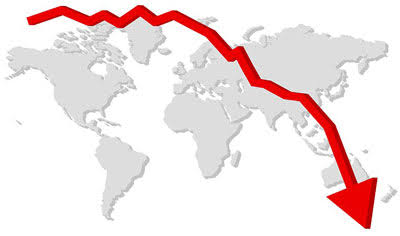By Zion Rufus
For months going into 2022, global economy analysts had warned of a looming recession; and just when we thought we could draw a breath of relief from the pangs of inflation which had plagued the most part of the year, a global recession probability model by Ned Davis Research has risen above 98%, triggering a “severe” recession signal.
According to the newly released data, this indicates that the risk of severe global recession is rising for some time in 2023, which would create more downside risk for global equities.
In addition to this impending woe, a World Bank draft report for State Action on Business Enabling Reforms has revealed that Nigeria’s economy is volatile and subject to both internal and external threats.
According to the report, although Nigeria’s economy in 2021-2022 recovered from recession induced by the COVID-19 pandemic and lower oil prices, growing by 3.6% in 2021 with an expected growth of 3.2% in 2022, welfare has continued to deteriorate.
The bank noted in its draft report that Nigeria’s economic ability to attract domestic and foreign investment is declining and the country’s welfare is worsening despite the economic recovery from the recession.
In its economic overview, the World Bank revealed: “Following the pandemic induced recession in 2020, Nigeria’s economic growth recovered but macroeconomic stability weakened. Amidst global commodity shocks, a depreciating currency, trade restrictions, and monetization of the deficit, inflation is surging and pushing millions of Nigerians into poverty. Since 2021, Nigeria is also unable to benefit from the surging global oil prices, as oil production has fallen to historic lows and petrol subsidy continues to consume a larger share of the gross oil revenues.”
Meanwhile, the negative impact of the continued devaluation of Naira, Pounds sinking to a record low against the Dollar, interest rate hikes by central banks around the world possibly triggering the possibility of a global recession in the middle of existing inflationary pressures, poses bigger challenges for manufacturers.
And with several markets such as the Real estate, Stocks, Crypto, and energy already posting losses, almost every sector now stands to be affected by this impending collapse.
“While the economy is projected to grow at an average of 3.2% in 2022-2024, the growth outlook is subject to downside risks including further declines in oil production and heightened insecurity. Meanwhile, continued scarcity of foreign exchange and tighter liquidity could affect the economic activity in the non-oil sector and undermine the overall macroeconomic stability. The uncertainty is also expected to be accompanied by high inflation and continued fiscal and debt pressures,” the report said.






Comment
No comments found.